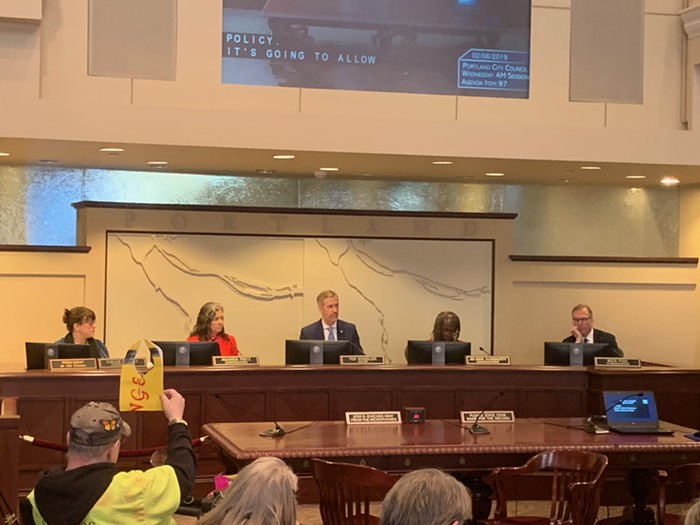
Portland has spent the last few years attempting to atone for a litany of past decisions that were made to systematically keep minority communities from achieving success. From creating an affordable housing program that helps people return to neighborhoods their families were gentrified out of to signing a document acknowledging the city’s racist past, Portland City Council has taken considerable steps toward addressing the city’s discriminatory policies.
But that seemingly earnest dedication to improving equity in Portland is toothless without first dismantling the one structure that keeps Portland’s biased policymaking in place: The city’s archaic form of government.
At least, that’s what a group of researchers argue in a recent report for Portland City Club. I’m here for it.
The city adopted its current “commission” form of government in 1913, when African American Oregonians were still banned from owning property or voting and made up an estimated .5 percent of Portland’s 200,000 residents. Now, 6.3 percent of the city’s 639,000 residents are Black.
Under the city’s commission form of government, Portlanders are represented by five commissioners, including the mayor, each of whom comes up with city policies and manages one of the city’s bureaus. Unlike our state or federal government, these commissioners do not represent a specific district within the city where they’re required to live, know, and speak for at city council meetings. But instead of electing commissioners from specific districts, Portland holds at-large elections—where the victors are those who collected the most citywide votes.
Convincing an entire city to elect any one candidate requires money, time, and powerful friends—which is why the vast majority of those elected to Portland City Council are well-connected white men who live in the city’s richest communities. (In city council’s 105-year history, only three people of color and nine women have been elected.) That’s left many Portlanders feeling ignored by commissioners who can’t understand what it feels like to be evicted, or threatened with a racist slur, or denied an opportunity based on your gender identity, or forced to live in a neighborhood without paved roads, sidewalks, or reliable public transportation.
Meanwhile, Portland continues to work really well for the people who look the same as the folks on city council.
Most US cities scrapped the commission form of government in the 1960s, when federal courts ruled that at-large voting led to systemic underrepresentation of racial minorities. Portland apparently missed the memo; we remain the only city with a population above 100,000 that still relies on the commission system.
The City Club’s report suggests Portland finally move on to a “council-manager” form of government, where elected officials are solely responsible for policymaking while an appointed, nonpartisan city manager takes over the administrative work that comes with running city bureaus. This would fix the distracting “turf wars” that play out between commissioners who prioritize their bureaus’ needs before the city’s greater needs.
The report, which calls for district-based elections, also suggests the city expand its council to at least 8 commissioners in an attempt to better represent Portland’s ballooning population. The city will have a chance to take up these suggestions in 2021, when Portland will review its charter, the document that defines its form of government.
Mayor Ted Wheeler, who regularly laments the fact he’s both Portland’s police commissioner and mayor, supports doing away with the city’s commission model, as do many advocates for campaign finance reform and civil rights. Those who favor the current system, including commissioners Nick Fish and Amanda Fritz, have used the 2018 election of Jo Ann Hardesty—the first Black woman elected to Portland City Council—as proof that the structure is not inherently racist.
But that argument insults the hard work of Portland’s underrepresented communities. It’s unlikely that Hardesty would be sitting at the council dais if she hadn’t already been a state legislator, led the city’s NAACP chapter, and was a well-known leader in Portland’s activist community. As we’ve seen in both private and public sectors, women of color are forced to work infinitely harder than white men to achieve comparable success, and it’s no different in ostensibly progressive Portland.
Yes, it’s fantastic that our city elected a Black woman, and that it now has majority-female council—but that’s despite Portland’s form of government, not because of it. Upending Portland's current government will be messy, challenging, and unpredictable. But merely maintaining the status quo will keep the city from living up to its full potential, allowing Portland to remain “the city that works” for a privileged few.



















